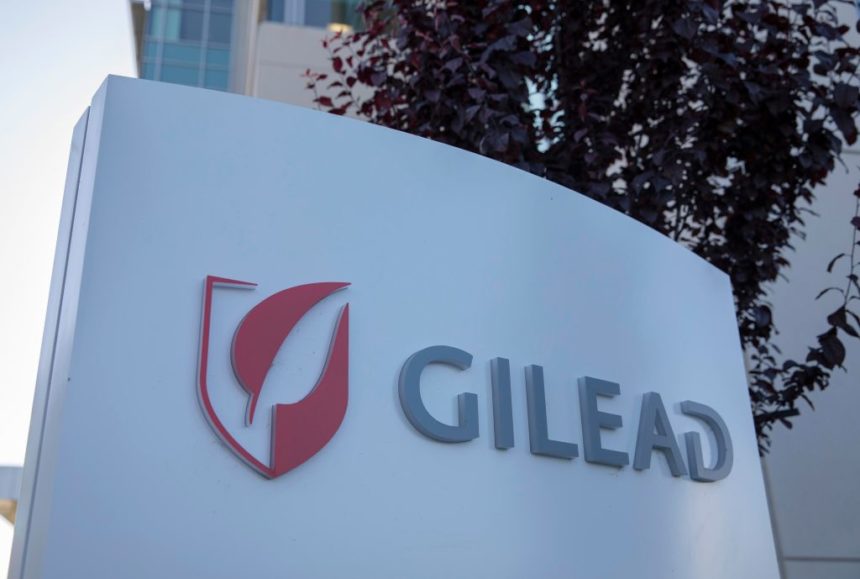Gilead Sciences and Arcus Biosciences said they’ve expanded their three-year-old collaboration.
An equity stake in Arcus, board seat for Gilead’s commercial chief and a streamlined immuno-oncology strategy are among the considerations.
The big drugmaker is buying $320 million in Arcus common stock at $21 a share, with the revised financial terms boosting its ownership in the biotech to 33% from around 20%. In addition, Gilead’s chief commercial officer, Johanna Mercier, will join the board of Arcus, bringing its total number of director designees to three out of 11 total seats.
The amendment also includes governance changes designed to streamline co-development programs spanning multiple indications, most notably their immuno-oncology TIGIT program domvanalimab.
“This amendment allows Glead to accelerate the domvanalimab program and enables Arcus to focus on progressing multiple pipeline assets, including both Gilead-optioned and non-optioned programs,” stated Merdad Parsey, Gilead chief medical officer, in a joint announcement this week.
In a Tuesday investor note, Leerink Partners’ Daina Graybosch assessed the pluses and minuses for both parties.
For Gilead, the extra investment doesn’t guarantee it any new therapeutic programs, so “investors may question the $320 million price tag of the equity investment,” the analyst pointed out.
On the contrary, as part of the amendments one domvanalimab-related line of development is being discontinued from further enrollment, the Phase 3 ARC-10 study testing the agent with other drugs in first-line non small-cell lung cancer (NSCLC).
Another Phase 3 trial will become an Arcus exclusive, a first-line pancreatic cancer study involving oral CD73 inhibitor quemliclustat. Although Gilead backed off the trial, it can opt back in later.
However, the amended pact does enhance Gilead’s exposure to two other opportunities.
The first is the collaboration’s STAR-121 program, involving the triplet of domvanalimab, PD1 drug zimberelimab and chemo in first-line, all-comer NSCLC. The second is STAR-221, assessing the same triplet in first-line advanced upper gastrointestinal cancer.
All other ongoing and scheduled TIGIT trials are set to continue, including the planned STAR-131 trial in perioperative NSCLC, as well as all trials of oral A2R inhibitor etrumadenant, ranging from the VELOCITY-Lung cohort to the ARC-9 trial, which is expected to read out in the second half of this year.
Analysts praised the more stripped-down focus and reprioritization around STAR-121, which is likely the largest NSCLC opportunity, and additional investment in NSCLC with the planned start of STAR-131.
Beefing up its equity stake allows Gilead “to exert more operational and strategic control of the companies’ jointly developed programs (namely TIGIT and PD-1), while retaining the R&D cost efficiency advantages of a recurring post-proof-of-concept (PoC) option model,” Graybosch wrote.
That said, the companies essentially removed optionality for a chemo-free regimen by discontinuing ARC-10, while concentrating their “clinical risk” in STAR-121, the Leerink team added.
For its part, Arcus, despite giving up some operational control, is extending its cash runway to 2027 from 2026, at a roughly 37% premium, according to Graybosch.
The investment should enable the biotech’s research into CD73 compound quemliclustat in pancreatic cancer and AB521 in kidney cancer and allow for preparation of the firm’s first potential product approvals, said Arcus CEO Terry Rosen. The company plans to launch a Phase 3 AB521 trial by early 2025.
The firm is also expecting another $100 million “continuation payment” from Gilead this year as part of their preexisting agreement, according to the Leerink team.
On the downside, opined Graybosch, “[W]e suspect some investors will be disappointed that the deal presumably takes an Arcus acquisition off the board.”
Moreover, Gilead did the “bulls” no favors by backing away from investing in quemliclustat in pancreatic cancer. Phase 1b data reported from the ARC-8 trial during the American Society for Clinical Oncology Gastrointestinal Cancers Symposium earlier this month were encouraging.
At the end of the day, Arcus and its investors are left to shoulder the brunt of quemliclustat’s clinical and execution risk, concluded Graybosch. Granted, should Gilead decide to opt back in at the commercialization stage, the drugmaker would need to pay a premium over their share of R&D cost.
Still, “We doubt the undisclosed premium is as much as the market would reward Arcus for taking on the risk.”
To read a July 2024 article about Gilead Sciences’ medical chief Merdad Parsey leaving in 2025, click here.







